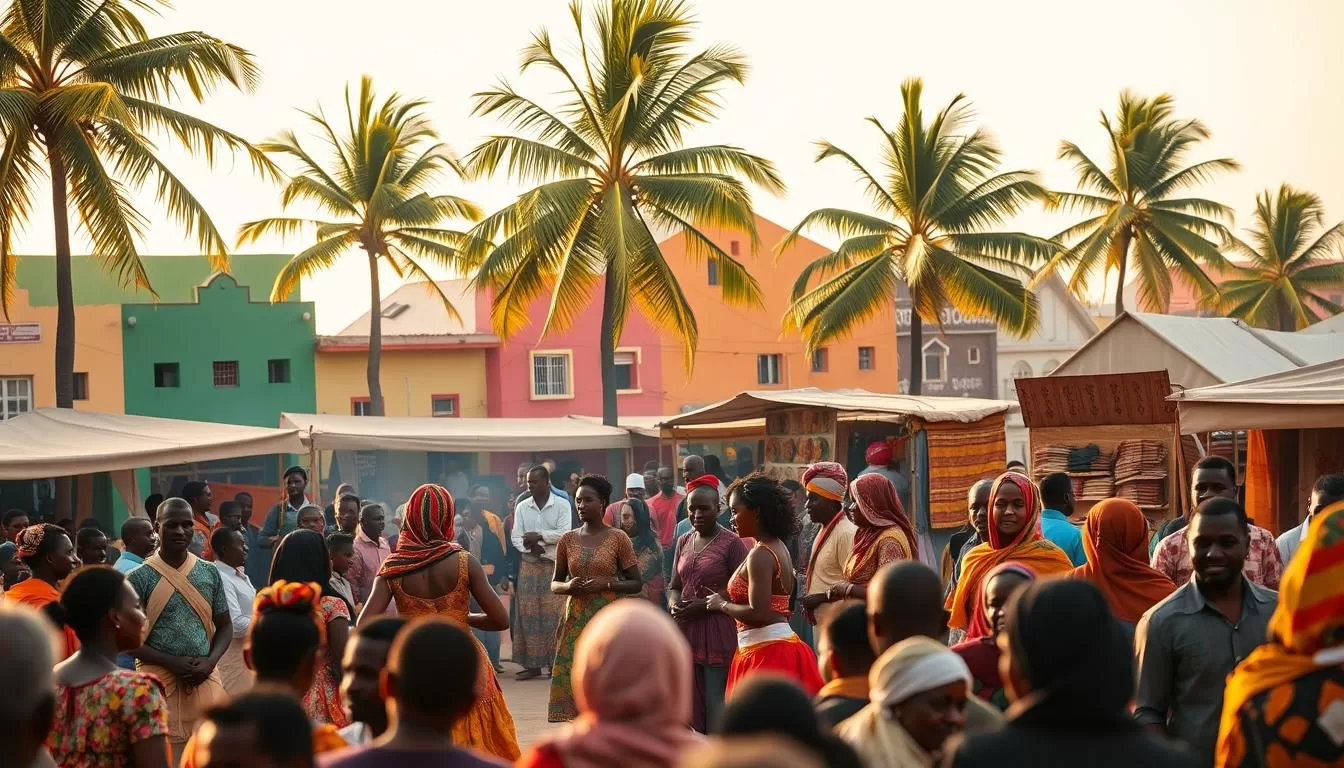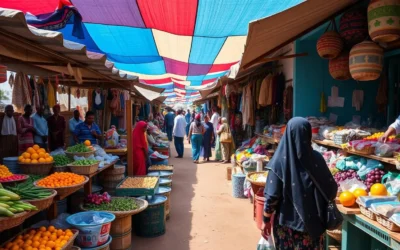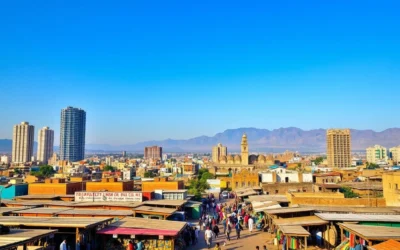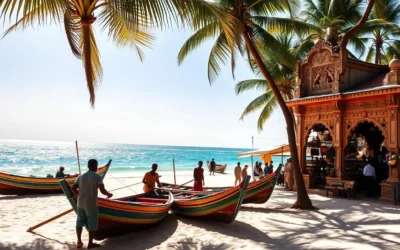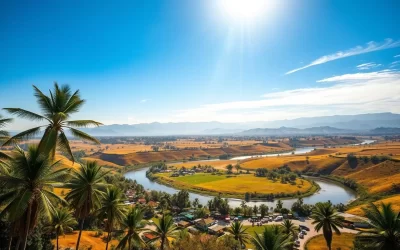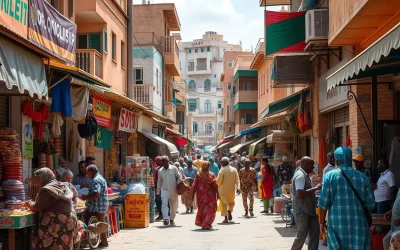✓ Accommodations✓ Flights✓ Rental Cars✓ Tours & Activities
Imagine immersing yourself in a country with a rich cultural heritage and breathtaking natural beauty. Located on the eastern coast of Africa, Somalia offers a unique blend of experiences that will leave you with unforgettable memories.
Despite facing challenges in recent years, Somalia’s vibrant cultural festivals remain a significant part of its identity, showcasing its predominantly Islamic culture and resilience. As you travel to this fascinating country, you’ll have the opportunity to engage with local communities and witness the cultural attractions that make Somalia a hidden gem.
By exploring these experiences, you’ll gain a deeper understanding of Somalia’s complex history and the spirit of its people. Get ready to discover the culture and attractions that await you in this captivating destination.
Understanding Somalia’s Cultural Landscape
As you explore Somalia’s cultural landscape, you’ll discover a blend of African, South Asian, and Middle Eastern influences. With approximately 99% of the population identifying as Sunni Muslims, Islam plays a significant role in shaping the country’s culture and events.
The Influence of Islam on Somali Celebrations
The overwhelming majority of Somalis being Sunni Muslims has a huge impact on the events celebrated in Somalia, as most of them have religious nuances. Somali celebrations are a unique blend of African traditions mixed with South Asian and subcontinental elements, creating a distinct cultural identity.
Regional Variations in Festival Celebrations
Somalia’s region is not culturally homogeneous; different parts of the country, from Mogadishu to Hargeisa and Berbera, celebrate festivals with regional variations. This diversity is a testament to Somalia’s complex history and its position in the Horn of Africa, influencing its cultural development and festival traditions over centuries.
| Region | Cultural Influences | Festival Celebrations |
|---|---|---|
| Mogadishu | African, South Asian | Eid al-Fitr, Independence Day |
| Hargeisa | Middle Eastern, African | Eid al-Adha, Neeroosh |
| Berbera | Subcontinental, Islamic | Day of Ashura, Eid al-Fitr |
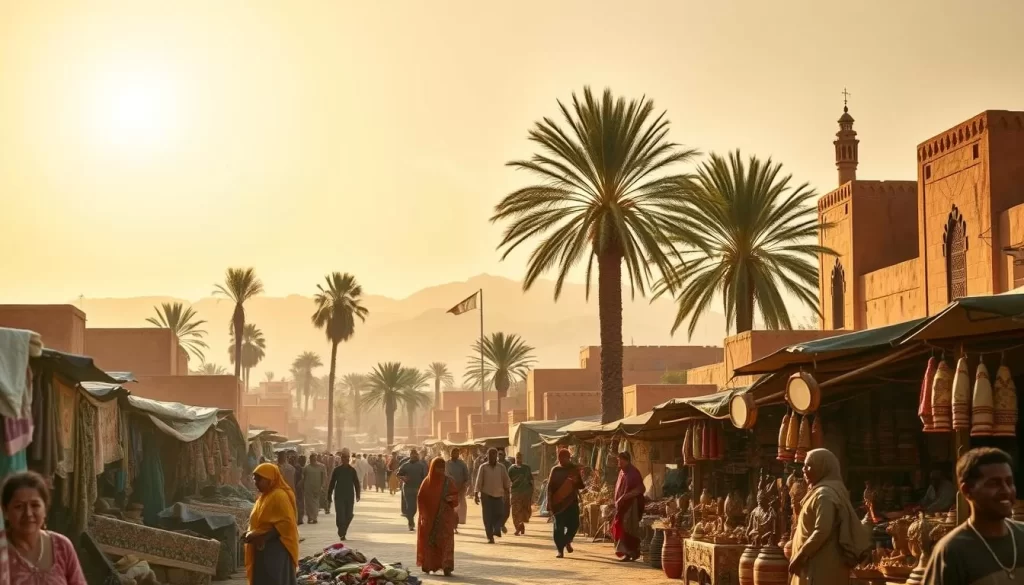
Best Time to Experience Somalia’s Festivals
When planning your trip to Somalia, timing is everything to ensure you experience the country’s vibrant festivals. The country’s cultural calendar is rich with celebrations, but the best time to visit can significantly impact your experience.
Seasonal Festival Calendar
The best time to visit Somalia for festivals is during the dry season, which typically runs from December to February. This period offers warm and dry weather, with clear skies and little to no rain, making it ideal for exploring the country’s cultural events. Many Somali festivals follow the Islamic lunar calendar, so their dates vary each year on the Gregorian calendar. Understanding the seasonal festival calendar can help you plan your trip around the most significant celebrations.
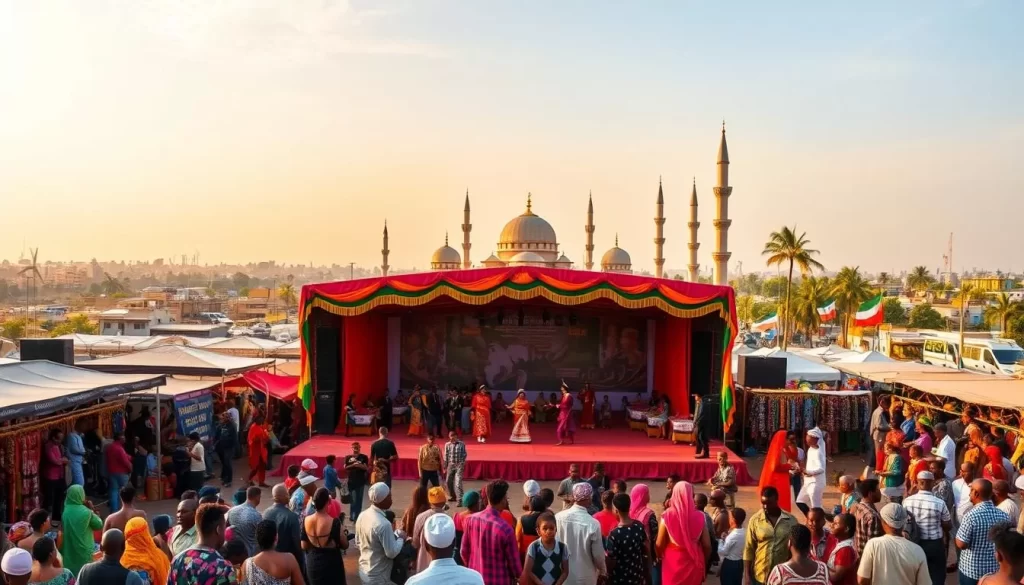
Weather Considerations for Festival Attendance
Somalia experiences a hot and humid climate year-round, but the dry season is the most conducive time for outdoor festival attendance. Visiting during the rainy seasons (March-May and October-November) can be challenging due to heavy rainfall and occasional flooding. Planning your trip around the dry season will ensure that you can fully enjoy Somalia’s vibrant festivals without weather-related disruptions.
Independence Day: Celebrating Freedom from Colonial Rule
On June 26th, Somalis around the world celebrate their Independence Day, marking a pivotal moment in their history. This day commemorates Somalia’s independence from Italian and British colonial rule, gained on June 26, 1960.
The Historical Significance of June 26th
June 26th, 1960, is a day of great historical significance for Somalia as it marks the country’s transition from colonial rule to independence. Although Somalia was under Italian and British rule until 1960, the nation finally achieved its history-making independence. However, the journey to true freedom has been complex, with periods of violence and political instability.
How Independence Day is Celebrated Today
Today, Somalis celebrate Independence day with various events and cultural activities. You can experience the patriotic atmosphere that pervades cities and towns across Somalia during this national celebration. The events include parades, speeches, cultural performances, and community gatherings, showcasing the nation’s rich heritage and unity.
Some of the key aspects of Independence Day celebrations include:
- Traditional Somali foods and drinks
- Cultural performances and music
- Community gatherings and patriotic speeches
- Regional variations in celebrations, highlighting local customs
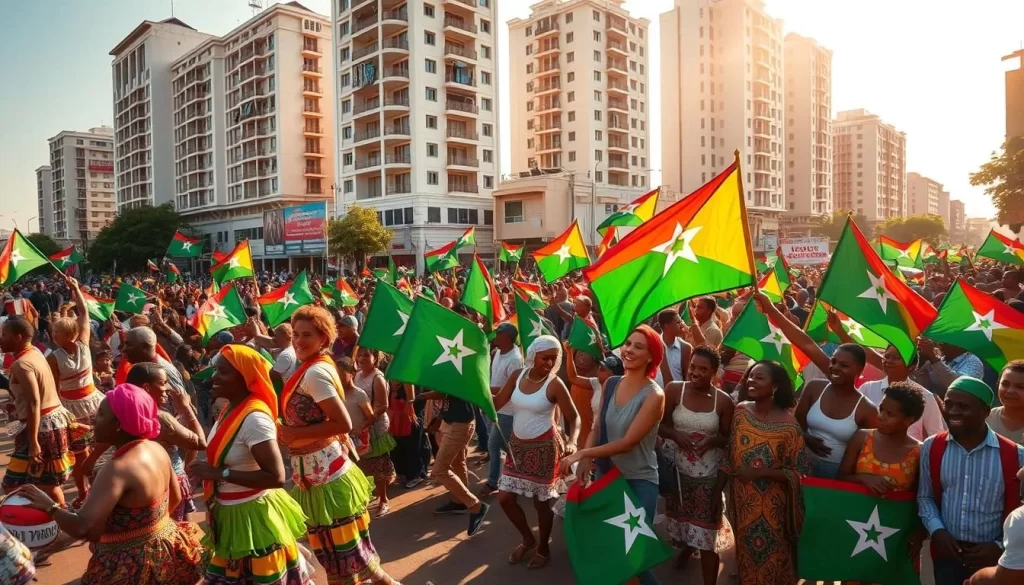
Neeroosh: The Festival of Fire
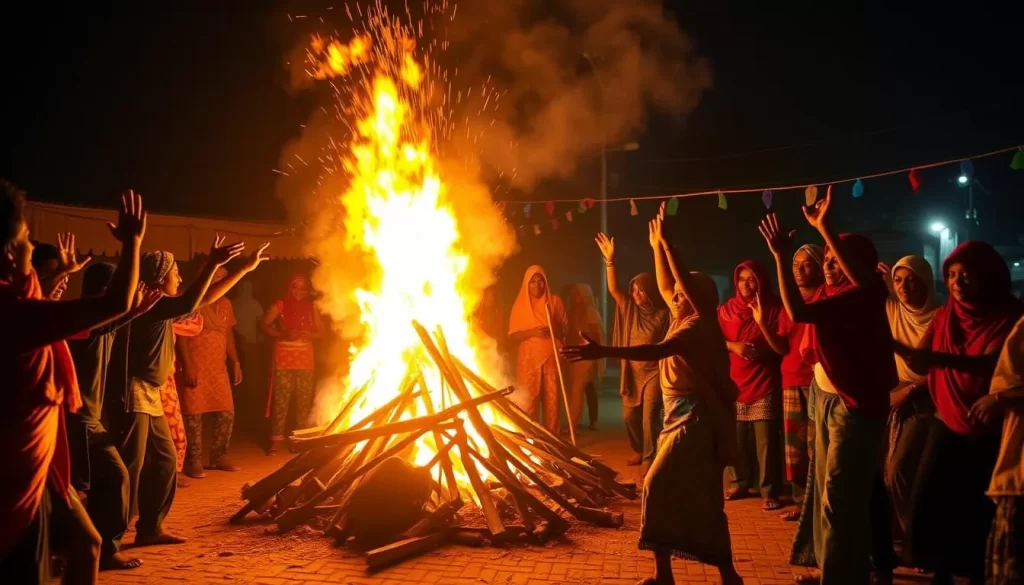
Every July, Somalis come together to celebrate Neeroosh, a joyous festival marking the beginning of the solar year. Although Somalia primarily follows the lunar calendar for religious events, the solar calendar is used to determine important events like harvest times.
Origins and Significance of Dab-shid
Neeroosh, or Dab-shid, has its roots in the cultural practices of Somalis who use both lunar and solar calendars for different purposes. The festival signifies the start of the solar year and is a time for celebration and renewal.
Traditional Activities and Celebrations
During Neeroosh, locals build huge bonfires, splash water on each other, and perform traditional dances. This activity is a welcoming gesture to the arrival of summer and is filled with joy and festivity. The festival is a significant attraction for visitors, offering a unique glimpse into Somali culture.
As you experience Neeroosh, you’ll be immersed in a vibrant atmosphere that showcases the rich cultural heritage of Somalia. It’s an ideal time to engage with locals and witness the day-long celebrations.
Eid al-Fitr: Marking the End of Ramadan
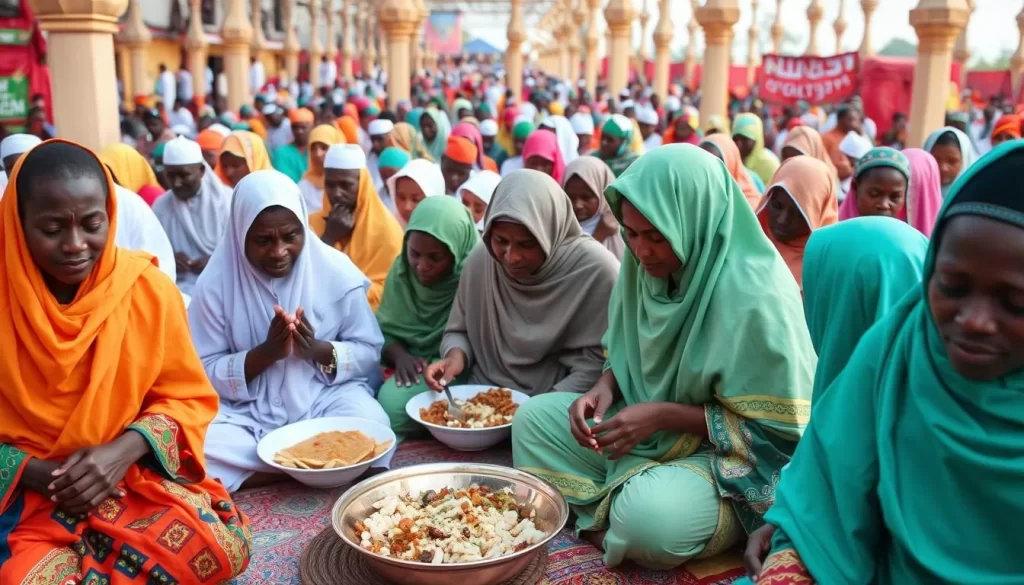
Somalia comes alive during Eid al-Fitr, as families and friends gather to celebrate the end of Ramadan with feasts, prayers, and new clothes. This significant Islamic holiday is observed with great enthusiasm across Somaliland, Puntland, and greater Somalia.
Religious Significance and Traditions
Eid al-Fitr is a celebration of the completion of Ramadan, the holy month of fasting. It’s a day to acknowledge the efforts and sacrifices made during this period. The day begins with special prayers at mosques, followed by gatherings with loved ones.
Somali Customs and Special Foods
During Eid al-Fitr, Somalis engage in various customs, including the preparation of traditional foods, wearing new attire, and exchanging gifts. The festive atmosphere is palpable as people come together to share meals and enjoy each other’s company. Traditional Somali cuisine plays a significant role, with dishes prepared specifically for this occasion.
As you travel to Somalia during Eid al-Fitr, you’ll experience the vibrant culture and hospitality of the Somali people. It’s a unique opportunity to be part of this significant celebration in the Islamic world.
Eid al-Adha: The Feast of Sacrifice
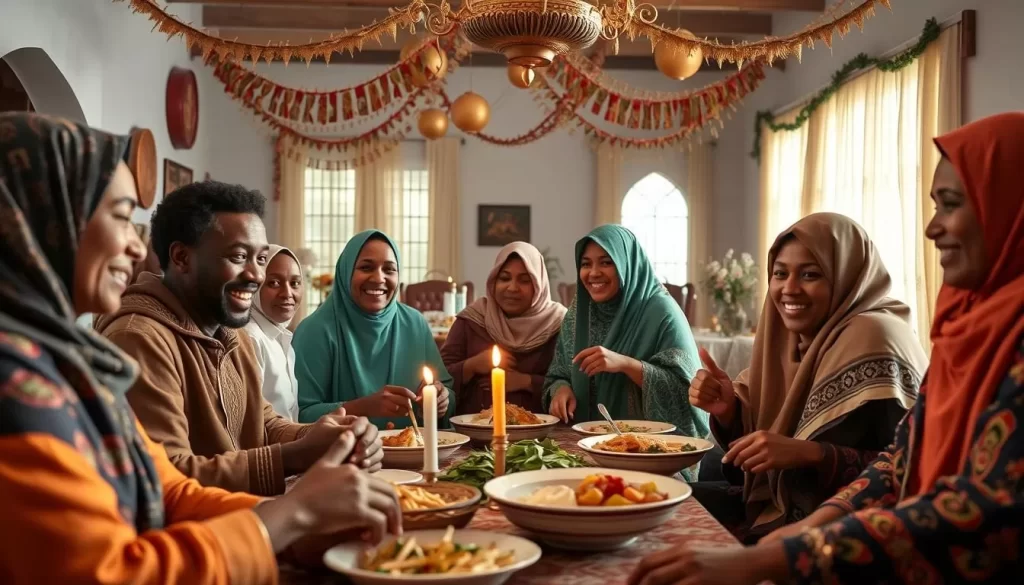
Somalia comes alive with the spirit of Eid al-Adha, a celebration that commemorates Prophet Ibrahim’s willingness to sacrifice his son. This significant religious event is observed with great fervor across the country.
The Story Behind the Celebration
Eid al-Adha, also known as Tabaski, is celebrated to honor Prophet Ibrahim’s readiness to sacrifice his beloved son, Prophet Ismayeel, as an act of obedience to God. This story, revered in both the Bible and the Quran, is a testament to Ibrahim’s faith and devotion.
Unique Somali Traditions During Tabaski
In Somalia, Eid al-Adha is a time for family gatherings, feasting, and sharing with those in need. Locals slaughter goats, cows, sheep, or camels to mark the occasion, cooking the meat to make a grand feast. The celebration, which lasts for two to three days, is characterized by traditional activities and communal sharing of food.
During Eid al-Adha, you can experience the rich cultural heritage of Somalia. The festival is a time when families come together, and the atmosphere is filled with joy and gratitude. Visitors can witness the unique Somali traditions that distinguish this celebration from others in the Islamic world.
As you travel through Somalia during Eid al-Adha, you may notice that many businesses close, and families gather together. This period offers a unique opportunity to experience the local culture and traditions firsthand. You can enjoy the special foods prepared during the festival and learn about the significance of the sacrificial meat distribution.
Understanding and respecting local customs can enhance your travel experiences during Eid al-Adha. By participating in the celebrations and engaging with the local community, you can gain a deeper appreciation for Somali culture and its rich heritage.
Day of Ashura: A Time of Remembrance
In Somalia, the Day of Ashura is marked with solemn remembrance, reflecting the country’s deep-rooted Islamic heritage. This significant religious observance commemorates the martyrdom of Hussein ibn Ali, the grandson of Prophet Muhammad, at the Battle of Karbala.
Religious Significance in Somali Culture
The Day of Ashura holds considerable religious significance in Somali culture, observed by both Sunni and Shi’a Muslims. It is a day to reflect on the historical events that led to the martyrdom of Hussein ibn Ali. This occasion is a public holiday in Somalia, during which time the Muslim community comes together to mourn and reflect on the sacrifices made.
Public Observances and Ceremonies
During the Day of Ashura, public processions and ceremonies take place across different regions of Somalia. These events are characterized by solemn prayers, recitations, and gatherings where people pay their respects to the martyrs of Karbala. Visitors can witness these ceremonies, providing a unique insight into Somalia’s religious heritage.
Somalia: Top Festivals to Check Out When Visiting – Practical Tips
To make the most of your travel experience in Somalia, it’s essential to know the practical tips for enjoying its top festivals. Somalia’s festivals are a significant part of its cultural heritage, and with the right information, you can have a safe and enjoyable trip.
Cultural Etiquette for Festival Attendance
When attending festivals in Somalia, it’s crucial to dress modestly and respect local customs. Somalia is a conservative Muslim country, and visitors should be mindful of this when participating in or observing festival activities. Understanding and respecting local traditions will enhance your experience and interactions with the Somali people. You should also be aware of the security situation and stay informed about local conditions to ensure a safe travel experience.
Photography and Participation Guidelines
When it comes to photography at Somali festivals, it’s polite to ask for permission before taking pictures of people or sacred rituals. Participation in festival activities can be a great way to immerse yourself in the culture, but be sure to follow local guides and respect any rules or customs associated with the events. This will help you navigate the festivals safely and enjoyably, making your trip to Somalia a memorable one.
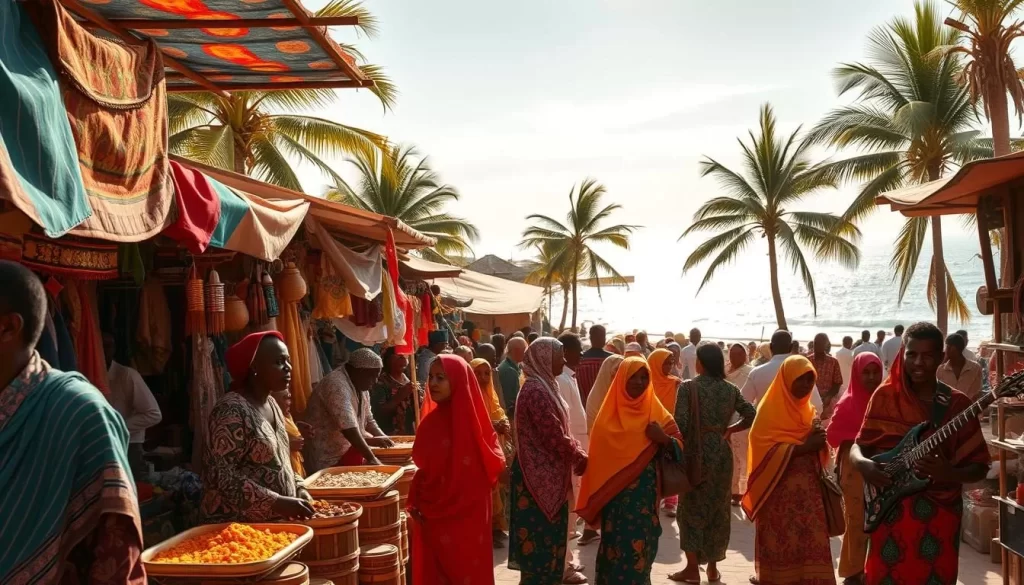
Conclusion: Embracing Somalia’s Rich Festival Heritage
With its diverse festivals, Somalia presents a fascinating cultural destination that defies common perceptions and invites travelers to experience its rich heritage. As you travel through different regions of Somalia, you’ll encounter a wide range of celebrations that reflect the country’s history and cultural identity.
The country’s beautiful beaches and natural attractions complement its vibrant cultural scene, making Somalia an exciting destination for adventurous travelers. By attending Somalia’s festivals, you’ll not only experience the local culture firsthand but also contribute to the preservation of the country’s heritage.
With the help of local guides, you can plan a meaningful trip to Somalia’s festivals and explore the country’s many landmarks and historical sites, creating lasting memories of your experiences in this unique and captivating country.
The above is subject to change.
Check back often to TRAVEL.COM for the latest travel tips and deals.
